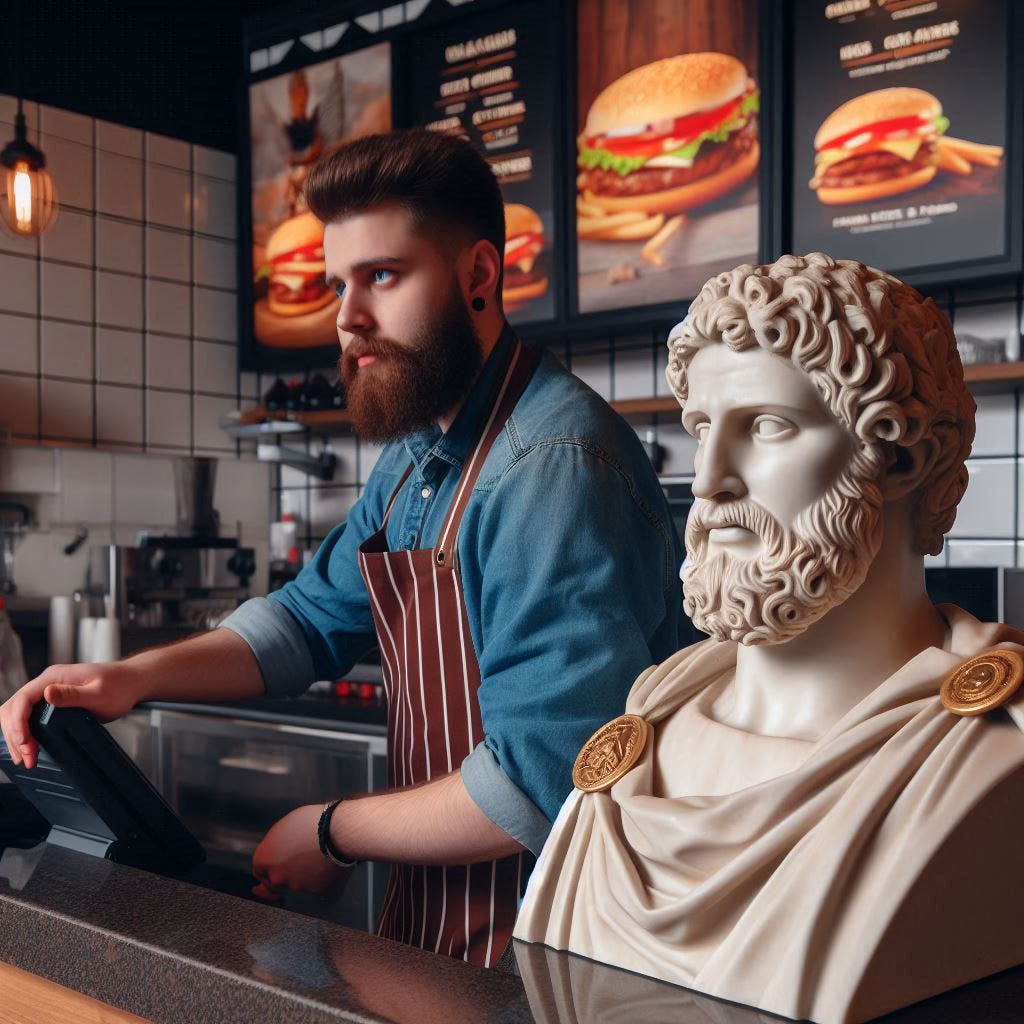The quarrel of the day is about work. Either the American economy is littered with well-paying entry-level jobs, or it’s fetid with inflation and debt. Either young men should knuckle down and grind their way to middle-class comfort, or they should scoff at the very idea and steel themselves against a decadent society.
You can view the question from a variety of standpoints, but one thing that’s certainly involved is a debate about agency. Many young men seem to feel, rightly or wrongly, as if their elders are operating from a contemptibly outdated set of assumptions about buying power, housing prices, and the spiritual health of American society.
The old conservative ethos of self-reliance and industry can sound condescending in 2025. It can feel like the people who preach it aren’t taking present-day structural obstacles to prosperity seriously enough. But to the entrepreneurial go-getters among us, this sounds like whining and excuses.
So far, the most reasonable commentary on the matter has come from a Frenchman, Pascal-Emanuel Gobry, who observes that two things can be true at once:
As a general rule, personal accountability is a more useful guide to action than sweeping theories about the Immutable State of Things. This is an insight that has been driven home to me this month. I’m teaching a class on Meditations, the personal notebook of the Stoic Roman Emperor Marcus Aurelius, and one of my students made the penetrating observation that Aurelius is a fatalist about everyone except himself.
In one paragraph, he’s talking as if other people are helpless to correct their flaws: “They are like this because they can’t tell good from evil.” In the next, he’s sternly admonishing himself to correct his flaws! “Stop allowing your mind to be a slave, to be jerked about by selfish impulses, to kick against fate and the present, and to mistrust the future.”
Philosophically, the Stoics had a problem: they were determinists, but they were also moralists. They believed that every event without exception was immutably prescribed by a perfect universal order. They also wanted to bring themselves in line with that order, which meant they thought some ways of behaving are better than others.
If you can hold these two ideas in your head at once, you’re a subtler thinker than I am. Some people think there’s a way to reconcile free will with fate; but I’m a simple man, and to me, it makes no sense.
As a theory, that is. Yet Aurelius makes ingenious use of it as a practical rule for life. What he tends to do is treat other people’s actions as products of their upbringing and their circumstances. If he can’t talk you out of your vices, he’ll chalk them up to your natural ignorance and pity you for them. But where his own failings are concerned, he proceeds as if he absolutely can and should do better.
So a set of ideas that can’t possibly be altogether right in the abstract turns out to be quite workable and even admirable from the first-person point of view. Maybe it can’t possibly be true that all our actions are both predetermined and under our control. But from our own individual perspective, which is the only one we’re given, it’s certainly as if other people’s choices can’t be helped whereas ours are free. How much is up to us in the absolute sense, and how much is ordained from the foundations of the world, only God can say. What we know, we know.
It’s probably always true both that world is broken, and that fixing our own lives is on us. Another of Marcus’ best observations is that whatever your situation, be you a fry cook or emperor of Rome, acting well is within your reach. “Anywhere you can lead your life, you can lead a good one.” Even here. Even now.
Rejoice evermore,
Spencer






An internal locus of control--even if less substantiated by objective evidence--is reliably the outlook for success.
Believe in yourself. Not because you have overwhelming proof that you're up to the task, but because believing in yourself works better.
I love this. It seems like Aurelius reversed the Fundamental Attribution Error here. I'm not a religious person (but I'm trying) and to me it sure seems like the approach that Aurelius professed might be among the things that would answer the question "What would Jesus do?"